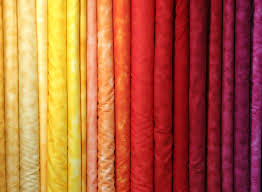记忆方法
1. faber (genitive fabri) "workman in hard materials, artisan who works in hard materials".
2. fabr- + -ic => fabric.
3. => "building, thing made".
4. Latin faber was a term for an artisan who worked with hard materials – a carpenter, for example, or a smith (it probably came from a prehistoric Indo-European base meaning 'fit things together').
2. fabr- + -ic => fabric.
3. => "building, thing made".
4. Latin faber was a term for an artisan who worked with hard materials – a carpenter, for example, or a smith (it probably came from a prehistoric Indo-European base meaning 'fit things together').
中文词源
fabric 织物,结构
来自PIE*dhabh, 匹配,装配,词源同deft, forge. 用来指织物,结构。
英语词源
- fabric
-
fabric: [15] Latin faber was a term for an artisan who worked with hard materials – a carpenter, for example, or a smith (it probably came from a prehistoric Indo-European base meaning ‘fit things together’). From it was derived fabrica, which denoted the trade such a man followed, the place where he worked, or in general terms the product of his work – in the case of a carpenter, a ‘building’.
And ‘building’ was the original sense of the word in English when it acquired it via French fabrique: ‘He had neuer studye in newe fabrykes ne buyldynges’, William Caxton, Golden Legend 1483. Remnants of the usage survive in the current sense ‘walls, roof, and floor of a building’. It was not until the mid 18th century that the underlying notion of ‘manufactured material’ gave rise to the word’s main present-day meaning ‘textile’.
Derivatives include fabricate [18], from Latin fabricāre, and forge.
=> forge - fabric (n.)
- late 15c., "building; thing made; a structure of any kind," from Middle French fabrique (14c.), verbal noun from fabriquer (13c.), from Latin fabricare "to make, construct, fashion, build," from fabrica "workshop," also "an art, trade; a skillful production, structure, fabric," from faber "artisan who works in hard materials," from Proto-Italic *fafro-, from PIE *dhabh- "to fit together" (cognates: Armenian darbin "smith;" also see daft).
The noun fabrica suggests the earlier existence of a feminine noun to which an adj. *fabriko- referred; maybe ars "art, craft." [de Vaan]
Sense in English evolved via "manufactured material" (1753) to "textile, woven or felted cloth" (1791). Compare forge (n.)) which is a doublet.
权威例句
- 1. He noticed that fabric was tearing away from the plane's wing.
- 他注意到机翼在一块一块地断裂。
- 2. Never dry underwear over direct heat; it will weaken the fabric.
- 不要直接加热烘干内衣,那样会损坏布料。
- 3. The fabric is strong enough to withstand harsh processing.
- 这种织物非常结实,能经受粗加工。
- 4. Condensation will eventually cause the fabric of the building to rot away.
- 冷凝作用将最终使建筑结构腐朽掉。
- 5. Waterproofed fabric pants are more expensive than plastic pants.
- 防水纤维短裤比塑料短裤贵多了。
